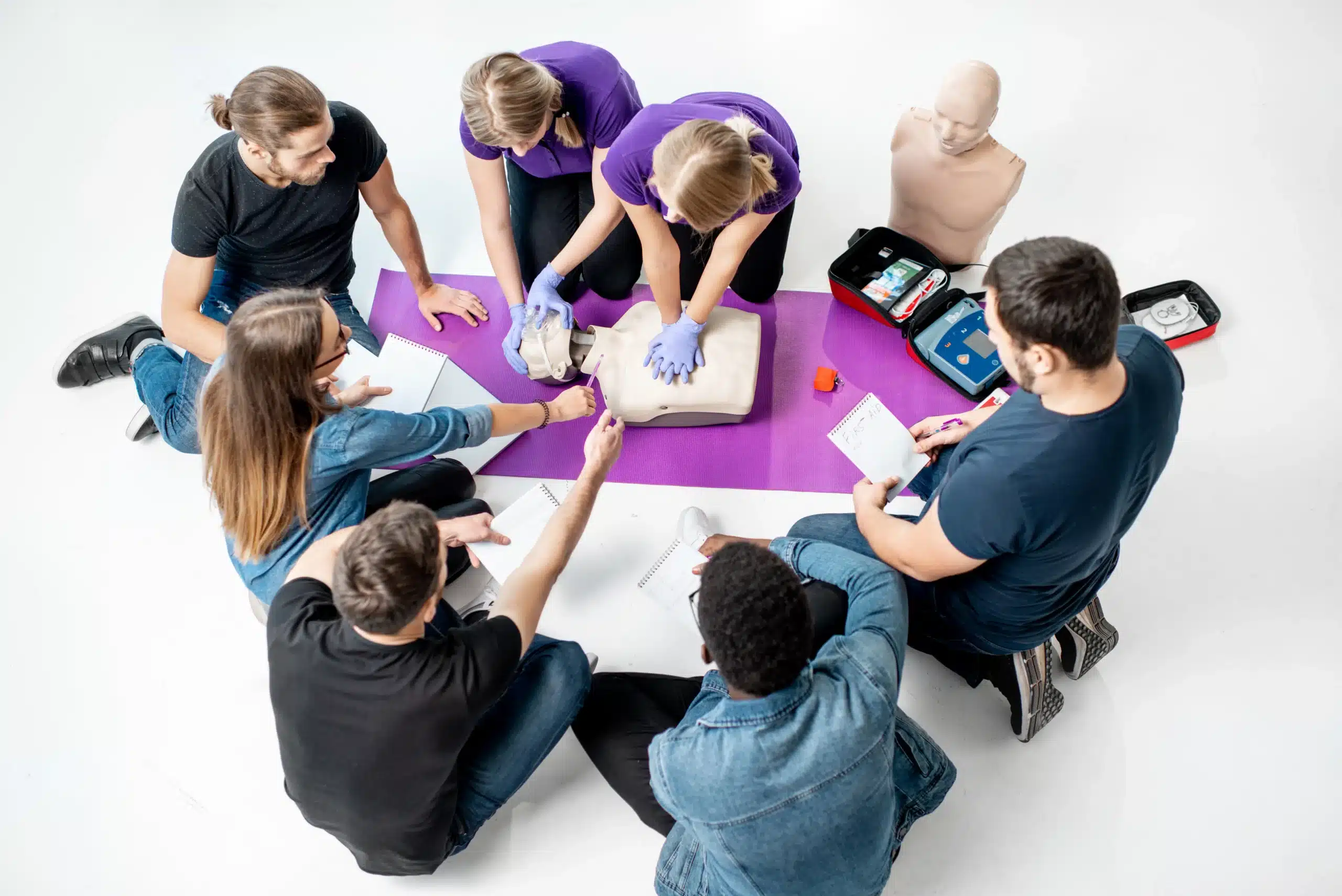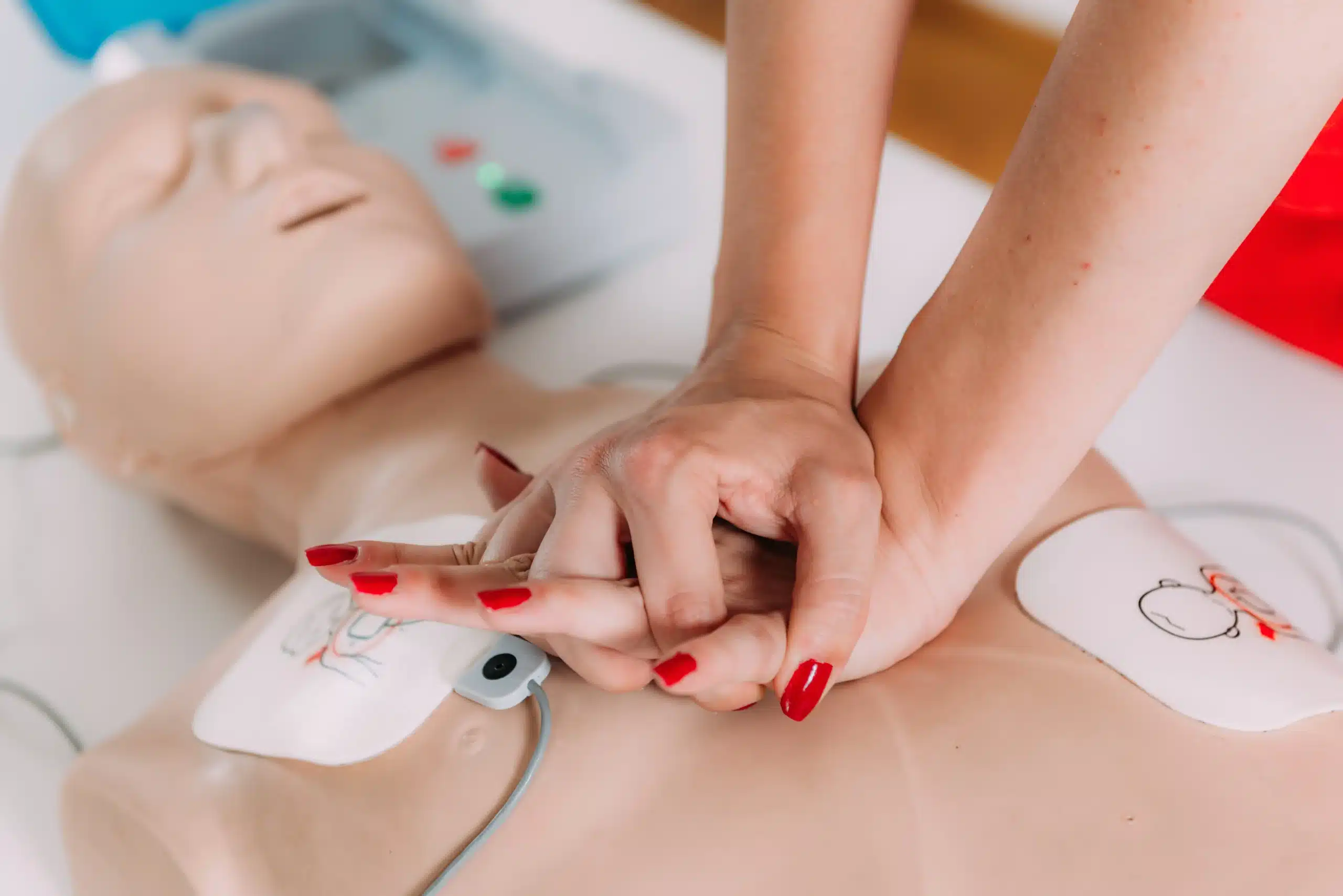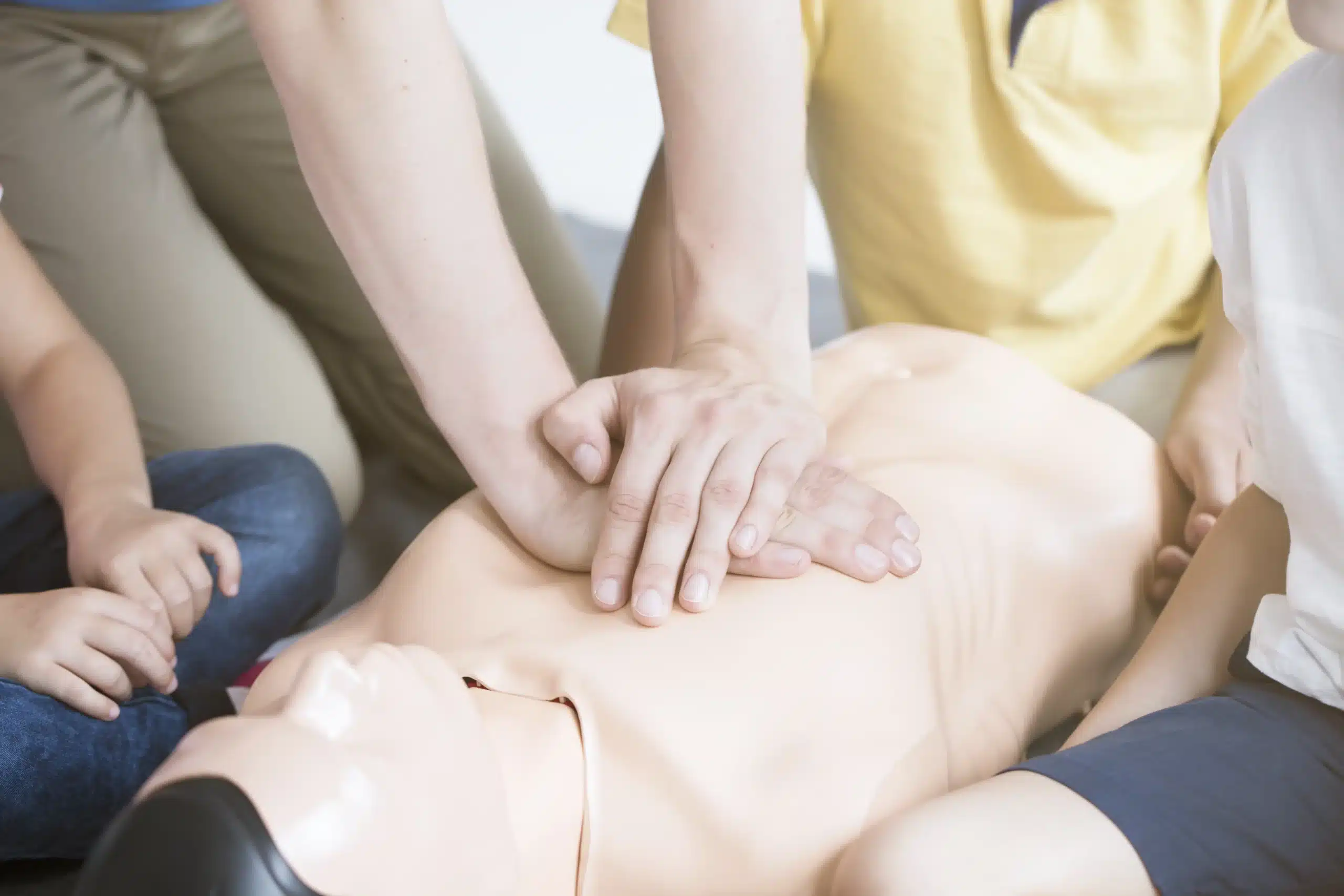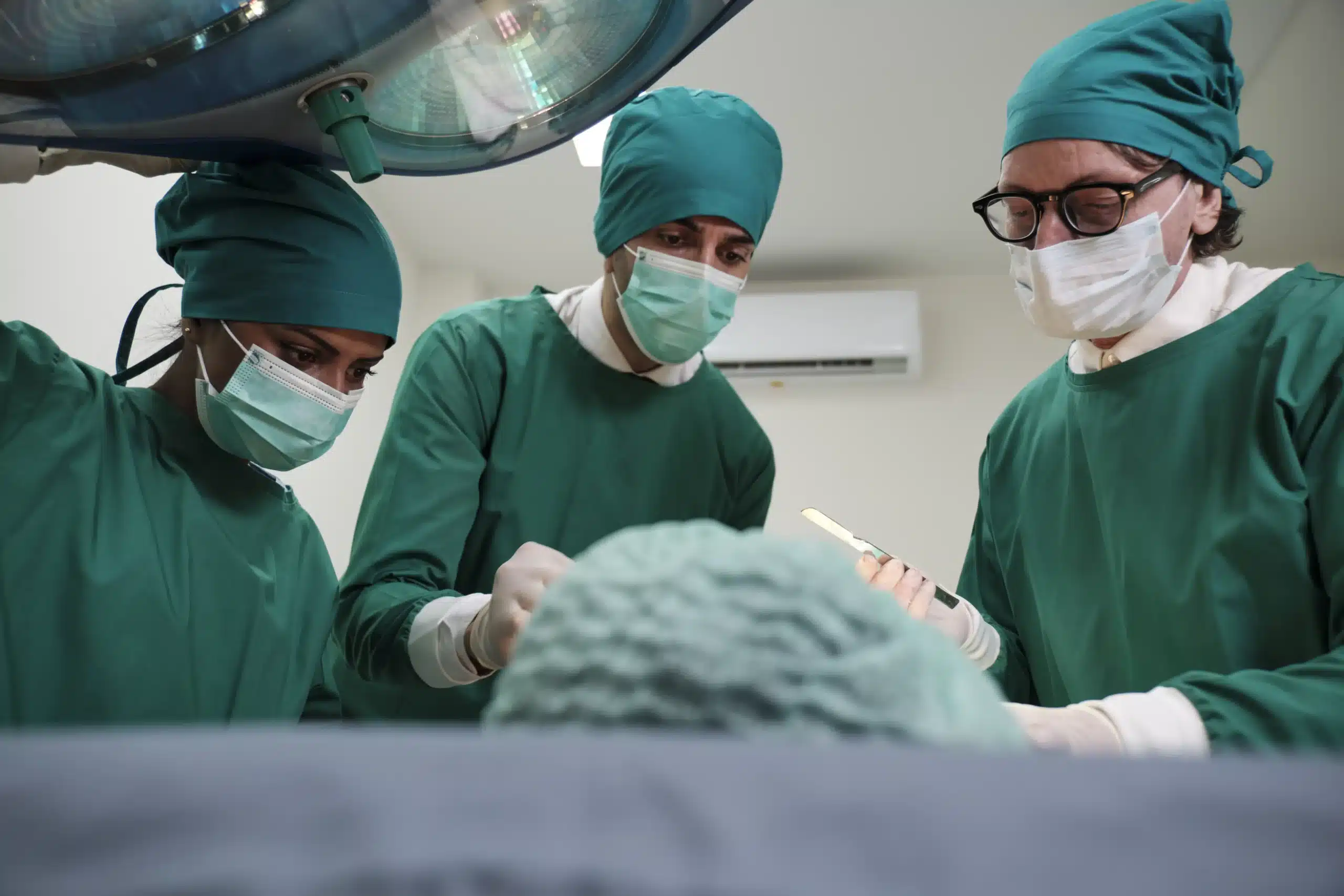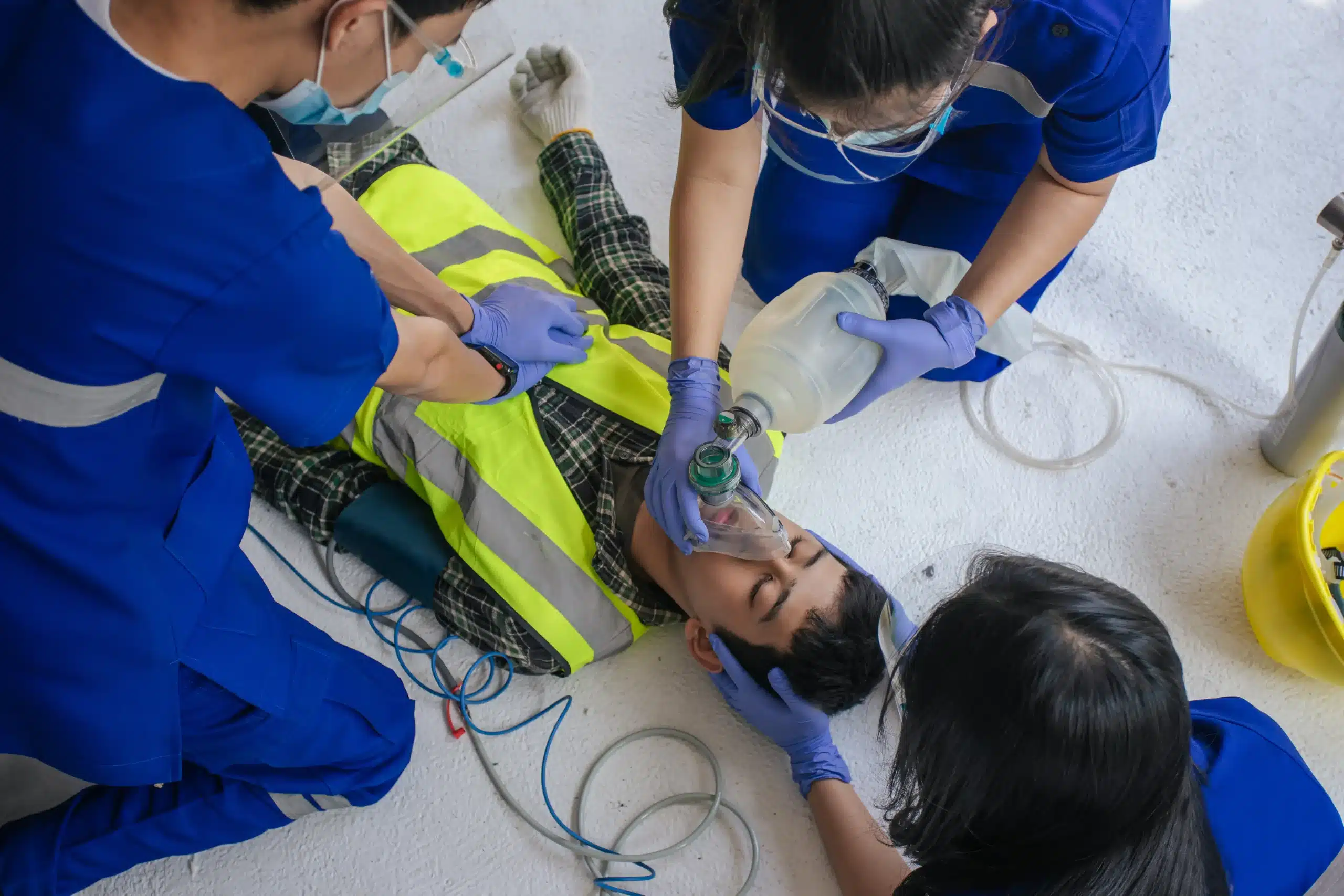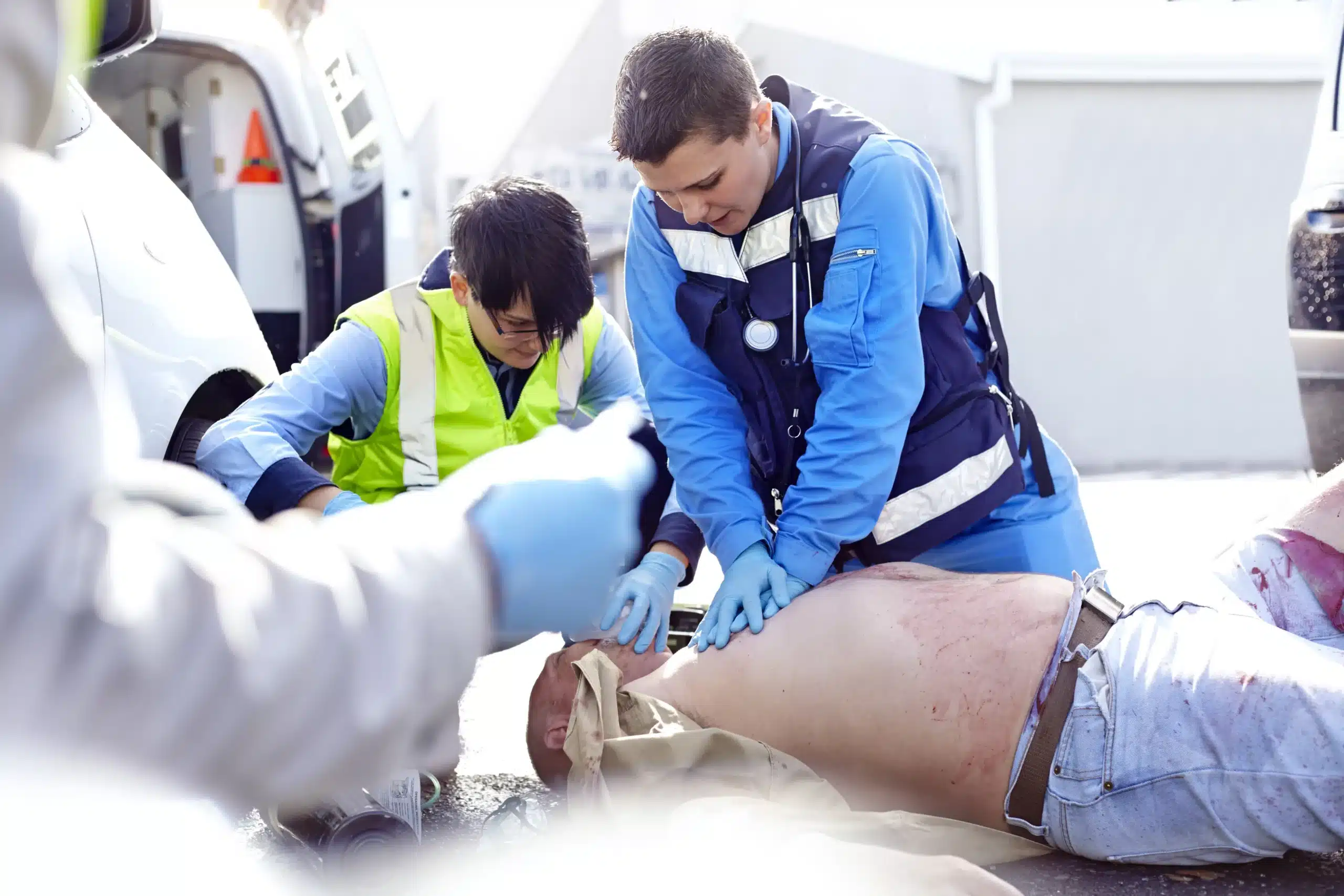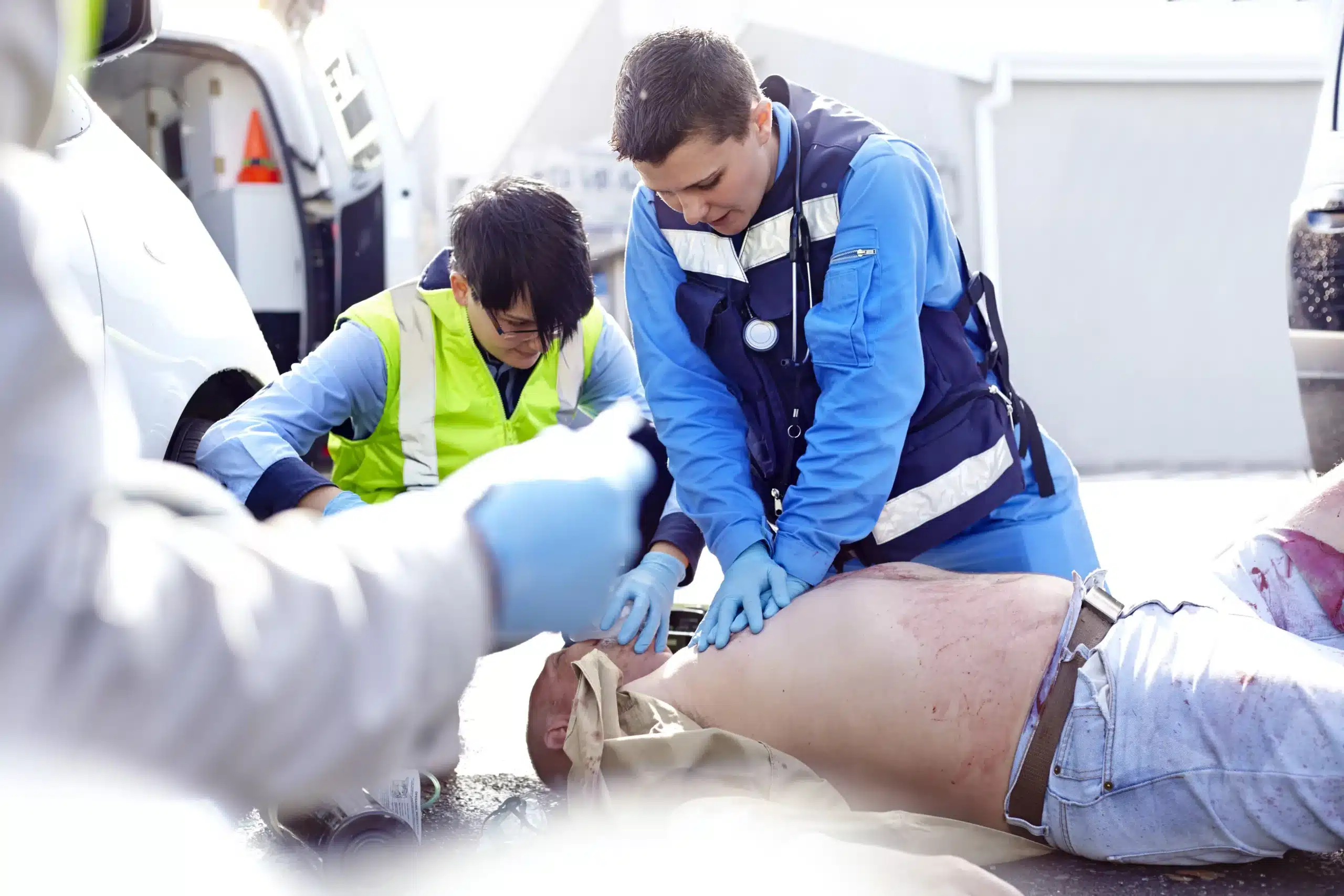Empowering yourself with life-saving skills is an incredible gift, both to yourself and your community. BLS certification provides the knowledge and confidence to respond effectively in medical emergencies. This guide breaks down the essentials of BLS, from understanding its core components to finding the perfect course for your needs, including BLS courses in San Leandro. We’ll explore the various training options available, discuss the importance of hands-on practice, and provide tips for choosing a reputable training center. Whether you’re a healthcare professional or simply someone who wants to be prepared for anything, this guide will help you on your path to BLS certification.
Key Takeaways
- BLS certification equips you to handle medical emergencies: Whether you’re a healthcare provider or simply want to be prepared, BLS training gives you the skills to respond confidently to life-threatening situations. Find a course and learn CPR, AED use, and basic life support techniques.
- Select a BLS course that meets your needs and learning style: Look for AHA-certified training from reputable providers like Hayward CPR Classes or the American Red Cross. Consider factors like instructor experience, hands-on practice, and realistic scenario training.
- Prepare for your course and maintain your certification: Review any provided materials beforehand, ask questions during class, and actively participate in practice sessions. Explore convenient renewal options to keep your skills current and your certification valid.
What is BLS?
What is BLS and Why is it Important?
Basic Life Support (BLS) is a crucial set of lifesaving skills and protocols for healthcare providers, first responders, and anyone prepared for a medical emergency. It focuses on immediate intervention for life-threatening conditions like cardiac arrest, respiratory distress, and choking. BLS emphasizes early recognition of these emergencies and quickly initiating essential procedures, including CPR, rescue breaths, and using an AED. These skills can dramatically improve the chances of survival until more advanced medical help arrives. Learning BLS means you can confidently respond to critical situations and potentially save a life.
Available BLS Courses
Several organizations offer high-quality BLS certification courses in the San Leandro area. Hayward CPR Classes provides American Heart Association-certified courses, known for their comprehensive approach and wide recognition. You can also find BLS training through the American Red Cross and other local providers like Safety Training Seminars, which often offer flexible scheduling options, including evening and weekend classes. Many providers also offer on-site training for larger groups, making it convenient for workplaces or community organizations to get certified together. Check with individual providers for specific course offerings and schedules.
Who Should Get Certified?
BLS certification is essential for a wide range of people. It’s a must-have for healthcare professionals like doctors, nurses, paramedics, and other medical personnel. First responders, including firefighters, police officers, and lifeguards, also benefit significantly from BLS training. Beyond these professions, BLS certification is highly recommended for those working in education, childcare, and other fields where they interact with the public. This includes teachers, coaches, camp counselors, and daycare providers. Ultimately, anyone who wants to be equipped to handle a medical emergency can take a BLS course—it’s a valuable skill set for parents, grandparents, and anyone who wants to be prepared to help in a crisis.
Find the Right BLS Course
Finding the right BLS course can feel overwhelming with so many options. This section breaks down a few providers in the Hayward area to help you make the best choice.
Hayward CPR Classes
Hayward CPR Classes offers a range of American Heart Association (AHA) certification courses, including BLS, ACLS, and PALS. They focus on convenient and affordable training, with daily classes and group discounts. Their streamlined recertification process, using the RQI program, is helpful for busy professionals. Serving Hayward, Union City, and San Leandro, their central location makes them accessible for those in Alameda County.
American Red Cross
The American Red Cross also offers BLS certification courses in Hayward. While they are a nationally recognized organization, compare their course offerings, schedules, and pricing with other local providers to ensure you’re getting the best value. Check their website for up-to-date information on BLS courses in the Hayward area.
Safety Training Seminars
Safety Training Seminars provides AHA-certified BLS, ACLS, PALS, CPR, and First-aid courses in San Leandro. As a woman-owned AHA Training Center, they offer high-quality instruction. If you’re located closer to San Leandro, they might be a convenient option. Consider their schedule and course offerings when comparing them to providers in Hayward.
Other Local Providers
Beyond these providers, exploring other local options can be beneficial. Searching online for “BLS courses near me” can uncover smaller training centers or community organizations that offer BLS certification. Confirm they offer AHA-certified courses, which are widely accepted and often required for healthcare professionals. Bay Area CPR lists various CPR and BLS classes in the Hayward area.
BLS Course Costs & Schedules
Finding a BLS course that fits your budget and schedule is easier than you think. Hayward CPR Classes offers competitive pricing and various scheduling options to accommodate busy professionals and individuals in Hayward, Union City, and San Leandro.
Pricing & Discounts
We believe that high-quality BLS training should be accessible to everyone. Check our website for current pricing on BLS certification courses. We also offer discounts for group classes, making it a cost-effective choice for workplaces or groups of friends. Contact us to discuss special offers and package deals.
Class Schedules
Hayward CPR Classes understands that your time is valuable. That’s why we offer classes seven days a week. This flexible schedule makes it easier to find a class that works with your availability, whether you prefer a weekday evening or a weekend session. Visit our website to view the course calendar and register for a class.
Online & Hybrid Learning
For those seeking a blended learning approach, our RQI program provides a streamlined path to recertification. This program combines online learning with in-person skills sessions, offering a convenient and efficient way to maintain your BLS credentials. The hybrid model allows you to complete the cognitive portion of the course online, followed by a hands-on skills evaluation at our training center.
Get BLS Certified
Getting your BLS certification is a straightforward process. Here’s what you can expect:
Course Content & Duration
BLS certification courses cover essential life-saving techniques, including CPR, AED use, and how to respond to medical emergencies like cardiac arrest. You’ll learn to recognize someone needing CPR, perform chest compressions and rescue breaths, and use an AED. These skills equip you to provide immediate care during the critical first few minutes of a medical emergency. A typical BLS course takes several hours to complete. Hayward CPR Classes offers BLS certification courses in Hayward, CA.
Skills Assessment
BLS courses aren’t just about lectures and demonstrations. You’ll also participate in hands-on practice and simulations to build confidence and proficiency. At Hayward CPR Classes, our instructors guide you through realistic scenarios, allowing you to apply your knowledge and refine your skills. This practical experience is key to mastering the techniques and feeling prepared to act in a real emergency. Contact us to learn more about our skills assessment process.
Certification & Renewal
Upon successful completion of the course and skills assessment, you’ll receive your BLS certification card. This certification is valid for two years. As your certification nears expiration, find BLS renewal courses through providers like the Red Cross to stay current on the latest guidelines and maintain your credentials. You can also contact us to inquire about recertification options.
Instruction Quality & Your Experience
Choosing the right BLS course involves more than just finding a convenient time and location. The quality of instruction and your overall learning experience are essential for truly mastering these lifesaving skills. Here’s what to consider:
Instructor Qualifications
Experienced, certified instructors are key to a positive and effective learning experience. Look for courses taught by American Heart Association-certified instructors with a strong healthcare background. For example, Safety Training Seminars is a woman-owned AHA Training Center, ensuring high-quality instruction. Instructors should be knowledgeable, approachable, and able to answer your questions thoroughly, creating a comfortable learning environment where you feel confident asking questions and practicing your skills.
Hands-on Training
BLS certification requires more than just textbook knowledge; you need practical, hands-on training to develop the muscle memory and confidence to perform CPR effectively in a real emergency. The American Heart Association emphasizes hands-on learning, so look for courses that offer ample opportunities to practice chest compressions, rescue breaths, and other essential skills on mannequins. Smaller class sizes can often provide more individualized attention and practice time.
Real-Life Scenarios
While practicing on mannequins is essential, understanding how to apply those skills in real-life situations is equally important. A high-quality BLS course will incorporate realistic scenarios and simulations to help you develop critical thinking and problem-solving skills. This type of training, as highlighted by the Red Cross, helps build teamwork skills and prepares you to respond effectively under pressure.
Student Feedback
One of the best ways to gauge the quality of a BLS course is to see what past students have to say. Check online reviews and testimonials to understand the instructor’s teaching style, the course content, and the overall learning experience. Positive reviews often mention engaging and supportive instructors who create a positive learning environment. This feedback can offer valuable insights and help you choose a course that meets your needs and learning style.
Prepare for Your BLS Course
Getting ready for your BLS course can boost your confidence and set you up for success. Here’s what you can expect, common concerns students often have, and tips for a smooth BLS certification journey.
What to Expect
BLS training gives you essential life-saving skills. You’ll learn CPR, how to use an AED, and how to recognize and respond to medical emergencies like cardiac arrest. These courses blend instruction with hands-on practice, so expect to participate actively in demonstrations and simulations. BLS classes are available in several locations, making them accessible to everyone.
Common Concerns
Many students wonder about finding a reputable training center. Safety Training Seminars is a woman-owned AHA Training Center that offers high-quality American Heart Association courses. Renewal is another frequent concern. Providers like Hayward CPR Classes offer online registration for BLS renewal courses, making the process easier.
Tips for Success
Before class, review any pre-course materials provided. These might cover basic anatomy or the AHA’s Chain of Survival. Prepare questions for your instructor. A good instructor will welcome your questions. To maintain your certification, explore various courses, group discounts, and streamlined recertification options like RQI. RQI offers a flexible and efficient way to keep your skills sharp. Remember, the goal is to master these essential skills, so active participation and a willingness to learn are key.
Related Articles
- BLS for Healthcare Providers in Union City: A Guide – Hayward CPR Classes
- BLS Certification in Hayward: Everything You Need to Know – Hayward CPR Classes
- BLS Courses in Hayward: The Complete Guide – Hayward CPR Classes
- BLS Renewal in San Leandro: Your Complete Guide – Hayward CPR Classes
- ACLS HeartCode San Leandro: A Certification Guide
Frequently Asked Questions
How do I choose the right BLS course for me? Consider factors like the course provider’s reputation (e.g., American Heart Association certification), instructor experience, class size (smaller classes often allow for more personal attention), the balance between theory and hands-on practice, course schedule, location, and cost. Reading reviews from past students can also provide valuable insights. If you’re in the Hayward, Union City, or San Leandro area, check out Hayward CPR Classes, which offers various AHA-certified courses.
What’s the difference between BLS and CPR? CPR (Cardiopulmonary Resuscitation) is a core component of BLS (Basic Life Support). BLS encompasses a broader range of skills, including CPR, using an AED, relieving choking, and understanding the Chain of Survival. Think of CPR as one of the essential tools within the larger BLS toolkit.
How long does BLS certification last, and how do I renew it? BLS certification is typically valid for two years. You’ll need to take a recertification course before it expires to maintain your credentials. Several providers offer renewal courses, including Hayward CPR Classes, which offers a streamlined recertification process through its RQI program. This program combines online learning with in-person skills sessions, making it a convenient option for busy professionals.
Is online-only BLS certification sufficient? While some online BLS courses exist, most healthcare settings and professional organizations require hands-on skills assessment as part of the certification process. A blended learning approach, combining online coursework with in-person skills practice and testing, is often a good option. It allows you to learn the theoretical material at your own pace and then demonstrate your skills in a real-world setting.
What if I’m nervous about the skills testing portion of the course? It’s completely normal to feel a little apprehensive about the skills testing. Remember, the instructors are there to support you and guide you through the process. The more you practice, the more confident you’ll become. Don’t hesitate to ask your instructor for clarification or extra practice time if needed. The goal is to equip you with the skills and confidence to respond effectively in an emergency.
